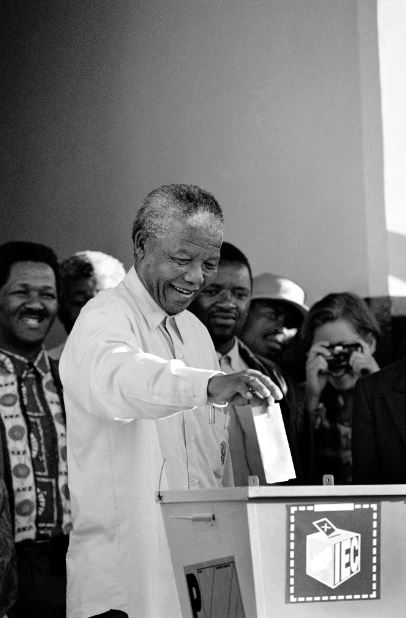The South African Heritage Resources Agency (SAHRA) is taking legal action to halt the auction of approximately 70 personal belongings of Nelson Mandela. Guernsey’s auction house in New York had recently announced its intention to auction these items on February 22, aiming to raise funds for a memorial garden near Mandela’s burial site. While the South African government had initially blocked the sale, claiming some items as national heritage, a court ruling last month favored the organizers, led by Mandela’s eldest daughter, Dr. Makaziwe Mandela.
In response, SAHRA, in collaboration with the Department of Sport, Arts and Culture, and the museum overseeing the island where Mandela was incarcerated, is seeking permission to appeal the judgment. The agency has filed court papers, emphasizing its commitment to preserving South Africa’s rich cultural heritage and contributing to responsible cultural heritage stewardship on a global scale.
The auction, organized by Dr. Makaziwe Mandela and others, received approval from a three-judge panel of the High Court in Pretoria. The court ruled that the government’s claim to the items as heritage objects was deemed “overbroad.” However, SAHRA contends that, despite respecting the court’s decision, it is essential to assess the lawfulness and implications of the impending auction.
Several years ago, a previous attempt to sell Mandela’s belongings drew objections from the South African government, especially regarding the sale of a key to the Robben Island prison cell where Mandela was held for many years. As a result, the planned 2022 sale was canceled.
Arlan Ettinger, the president of Guernsey’s, expressed shock at learning about the government’s plan to appeal and noted uncertainty about its potential impact on the auction. Ettinger stated that the Mandela family was unaware of these developments. He emphasized the need to remain strong and observe how the situation unfolds.
Dr. Makaziwe Mandela remains undeterred, asserting that the planned auction should proceed without interruption. She expressed confidence, stating that every time the heritage agency has gone to court, they have lost, suggesting they have no valid grounds. Dr. Mandela accused SAHRA of attempting to “steal things that don’t belong to them.”
Nelson Mandela, an iconic figure who dedicated his life to ending apartheid and fostering reconciliation in South Africa, passed away in 2013 at the age of 95. He was released from prison in 1990 after 27 years of incarceration and went on to become the country’s first black president in 1994. Mandela is buried in the Eastern Cape village of Qunu, where Dr. Mandela hopes to establish a 24-acre Mandela Memorial Garden.
In summary, the legal battle over the auction of Nelson Mandela’s personal items continues as the South African Heritage Resources Agency challenges the court ruling that permitted the sale. The dispute highlights the intersection of cultural heritage, legal rights, and fundraising efforts, shedding light on the complexities surrounding the legacy of a global icon like Nelson Mandela.

